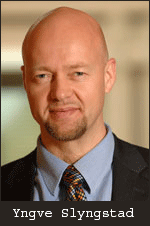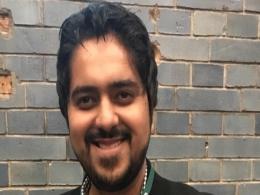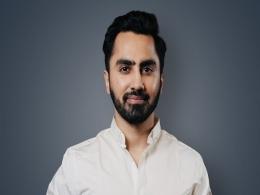In May 2012 the world's largest sovereign wealth fund joined U.S. investors BlackRock and Waddell & Reed to buy a $1.6 billion stake in motor racing's Formula One. The people who had worked on the deal for months were looking forward to celebrating their hard work.
Then they got an email from their boss. Under no circumstances were they to be seen drinking champagne in the VIP tribune at the Monaco Grand Prix.
"We have high expectations in terms of ethical standards, also for ourselves," says Yngve Slyngstad, the head of the fund, which invests $163,000 of oil and gas wealth for each man, woman and child in Norway. "We cannot behave in a way that makes people doubt that we have their best interests at heart," he told Reuters last August. "Our duty as an asset manager is to manage the people's money, public money. This means there is a particular responsibility on us."
Norway has a population slightly larger than the state of South Carolina but its government-run wealth fund has $833 billion in assets, making it one of the largest investors in the world. It owns 1.25 per cent of all the shares worldwide, 2.5 per cent in Europe, and it has a unique ethical mandate. That sees it avoid companies such as Walmart, which Norway deemed to have breached "human rights and labor rights."
But the fund is underperforming. Since it started as a sovereign fund in 1998, it has returned an average of just 3.41 per cent per year, short of its target of four per cent.
Now Slyngstad faces a political test. A new government, in power since last October, is reviewing strategy at the fund, which is officially called the Government Pension Fund Global. To boost returns, the right-wing coalition is reviewing its investment policy and organization and may let it invest in riskier assets. Some commentators worry that could hurt the fund's ethical focus.
Already, politicians and the media in Norway pay very close attention to the companies the fund invests in: It strives to meet the ethical expectations of five million Norwegians and heeds warnings from global campaigners such as human rights activists, environmentalists, and trade unions. Even Bill Gates has voiced an opinion.
At the fund's head since 2008 is Slyngstad. The 51-year-old is employed by the central bank and his ultimate boss is the parliament. Until last October, Norway, the world's number seven oil exporter, was ruled by a coalition led by the centre-left Labour party. Now the centre-right Conservatives are in an alliance with the more radical Progress Party. Progress made reshaping the fund part of its election promise; its leader, Siv Jensen, says her party "has been fighting Socialism for 40 years", and she is now finance minister.
Change - albeit gradual and consensual - is likely. Some in the Conservatives, whose leader Erna Solberg is Prime Minister, have suggested dividing Norway's wealth into two competing funds. Others, in Progress, want to break off three smaller funds to focus on renewable energy and foreign aid, and to let Norwegian finance groups manage some of the cash.
"The fund's investments have to be defendable politically," says Oeystein Doerum, chief economist at Norway's largest bank,
DNB.
Why playing it safe can hurt
Norway's finance ministry determines the broad assets Slyngstad can invest in. Originally that was only government bonds; corporate bonds, stocks and then real estate were added later. An independent council of ethics keeps a blacklist of companies whose shares the fund may not hold. Otherwise, Slyngstad is in charge.
"Slyngstad is clear and loyal, which is very important for the finance ministry," said Henrik Syse, the fund's head of corporate governance between 2005 and 2007 and a fund adviser until 2009.
Both government parties think the fund should be allowed to pep up its performance by investing in foreign infrastructure. Private equity investments are another possibility. Such assets would be less easy to trade, but could yield more.
Fund commentators such as Sony Kapoor, a senior visiting fellow at the London School of Economics who wrote a critical study of the fund last August, argue that in a changing world, the conservative approach has actually become a liability - the fund places too much emphasis on investing in developed economies.
The fund's mandate says investments must be balanced geographically: At the end of 2012 about 48 per cent was in Europe, 15.5 per cent in Asia-Pacific and 35.6 per cent in the Americas and Africa. The remainder was in bonds issued by international organizations, which the fund no longer buys.
"The fund's approach ... has now become a bet on the future of OECD economies being bright," Kapoor wrote. "This locks in low returns and exposes the fund to concentrated risks of ageing populations and over-indebtedness faced by many mature economies. The fund has inadvertently taken on a lot of risk, for very little return."
Kapoor says the mandate should be changed so that the fund can take advantage of long-term growth in emerging markets.
"Not only will this be good for Norway, it will also enable faster growth in poorer economies and create millions of much-needed jobs," he says. It's a line echoed by Bill Gates, the Microsoft founder turned philanthropist. He has argued that Norway, as one of the richest countries in the world, can afford to help out people in poor countries in Asia and Africa.
The fund is already increasing its exposure to emerging markets. The share of European investments should be reduced to 41 per cent gradually, the finance ministry said in 2012. "We invest according to our mandate as defined by the finance ministry,"says fund spokesman Thomas Sevang.
A punctual back-packer
People who know Slyngstad, who declined to be interviewed for this story, say he combines a close capacity for detail with a rapid, receptive mind.
A bald, goateed Oslo native, he joined the central bank in 1998 from insurance firm Storebrand and was the fund's head of equities before taking the top job. He has four master's degrees, competed in the sport of curling for Norway in the 1980s, and earned $970,000 in 2012.
Fund staff say his message about the Monaco Grand Prix is typical of a man who leaves nothing to chance, something which shows in his time-keeping. He presents results every quarter at a regular 10am news conference, held in a cavernous room in the basement of the central bank. At 10:00:00 sharp he begins reading from a press release, in Norwegian and in a fast, low voice.
"He is a bit like a machine gun ... information comes at you very quickly," Syse said.
From time to time, he likes to escape. In his late 20s Slyngstad backpacked around Asia, Latin America and Africa, according to media reports. In 1990 he retreated for six months to a fisherman's cabin in Norway's Arctic north to study the work of the German philosophers Martin Heidegger and Georg Wilhelm Friedrich Hegel.
Studying philosophy challenges one's thinking, he once said. "It was useful to understand how to handle risks today."
He certainly knows pressure: He became the fund's chief executive in the middle of the global financial crisis, the year of its worst performance. It lost 14.5 per cent of its value in the third quarter of 2008.
When Slyngstad took over the fund was already boosting its exposure to risk. It increased the share of assets it could invest in stocks to 60 per cent from 40 per cent. Critics at the time argued that this was too big a gamble, but it paid off.
The fund returned 12.7 per cent on its investments in the second quarter of 2009, its best ever performance, as world stocks bounced back.
Since then performance has been less volatile and in the fund's latest quarter, it returned 5.0 per cent. During Slyngstad's tenure so far, its annual return has averaged 3.14 per cent, just below the overall average.
"He is extraordinarily talented and has done a very good job, both with the way he handles the fund's everyday operations, but also in his ability to think in new ways," said Sigbjoern Johnsen, a Labour politician and Norway's finance minister until October.
Risk
Adding more risk to the fund's portfolio would not be simple.
The private equity industry - which borrows heavily to buy businesses - has a reputation for ruthlessness. Many companies say they are improving their governance, but upsets could be damaging. Infrastructure projects in the developing world often attract corruption. Earlier this month, four Norwegian fertilizer executives were indicted on charges of bribery in Libya and India - an accusation broadly accepted by their employer without blaming any individuals - which illustrates reputational risks in emerging markets. Could Norway's fund invest while sticking to its strict ethical standards?
The fund already talks with the 7,500 firms it invests in on topics from the equal treatment of shareholders to children's rights. Slyngstad himself is responsible for a focus on children's rights: Syse says the idea came up during a chat the two were having. How, Slyngstad asked, could a fund that invests for future generations make money out of exploited children abroad?
Between 2008 and 2011, the oil fund published reports on how particular investments fared in terms of child labour. In 2011, it even named companies it felt were best at managing and reporting the risks of child labour - these included Walt Disney, Ericsson and Hennes & Mauritz.
In addition to ethical policies drawn up by the fund itself, the finance ministry forbids investment in firms that produce nuclear weapons, anti-personnel landmines, cluster bombs or tobacco. Nor can the fund support companies involved in severe environmental damage, gross corruption or "serious and systematic human rights violation," such as forced labour, the worst forms of child labour, murder or torture.
An independent council of ethics makes recommendations to the finance ministry on what companies should be excluded. The five-strong council follows media reports about alleged abuses, commissions research and deals with reports made by non-governmental organizations.
Some 60 firms are currently out of bounds for Slyngstad and his team. Walmart was ruled out in 2006 for employing minors against international rules, allowing hazardous working conditions at suppliers, and blocking workers' efforts to form unions. Walmart does not comment on any shareholders that buy or sell its stocks. "Our company provides a range of jobs, and along with training and development, our associates have strong career opportunities. We are proud of what our associates achieve and the opportunities that we provide around the world," said Walmart spokesman Randy Hargrove.
Today, the oil fund's council of ethics is examining a range of issues from illegal or unregulated fishing to human rights violations in Myanmar or the Democratic Republic of Congo, its head told Reuters.
Tightening resources
Among proposed changes to the fund is a plan to scrap the council of ethics' independence. A government commission has found it may move more quickly if it was brought under the central bank's control. That possibility has alarmed activists, who argue the fund needs a strong and independent body to screen firms and make recommendations.
Critics also argue that the fund is already short of resources. It used to have a section working on corporate governance, for instance, with about 10 people dedicated to the issue in 2007, Syse said. That was scrapped when the head of the section left in 2012, and its staff integrated into equity investment.
The aim was to enhance their direct contribution and efficiency, says fund spokesman Sevang.
Whatever shape or resources the fund has in future, balancing risks and rewards will always be a tall order.
"The fund has to be able to defend its decisions politically as well as financially," said Steinar Juel, chief economist at bank Nordea. "The fund could be undermined if it is perceived to make investments that are politically unacceptable."






